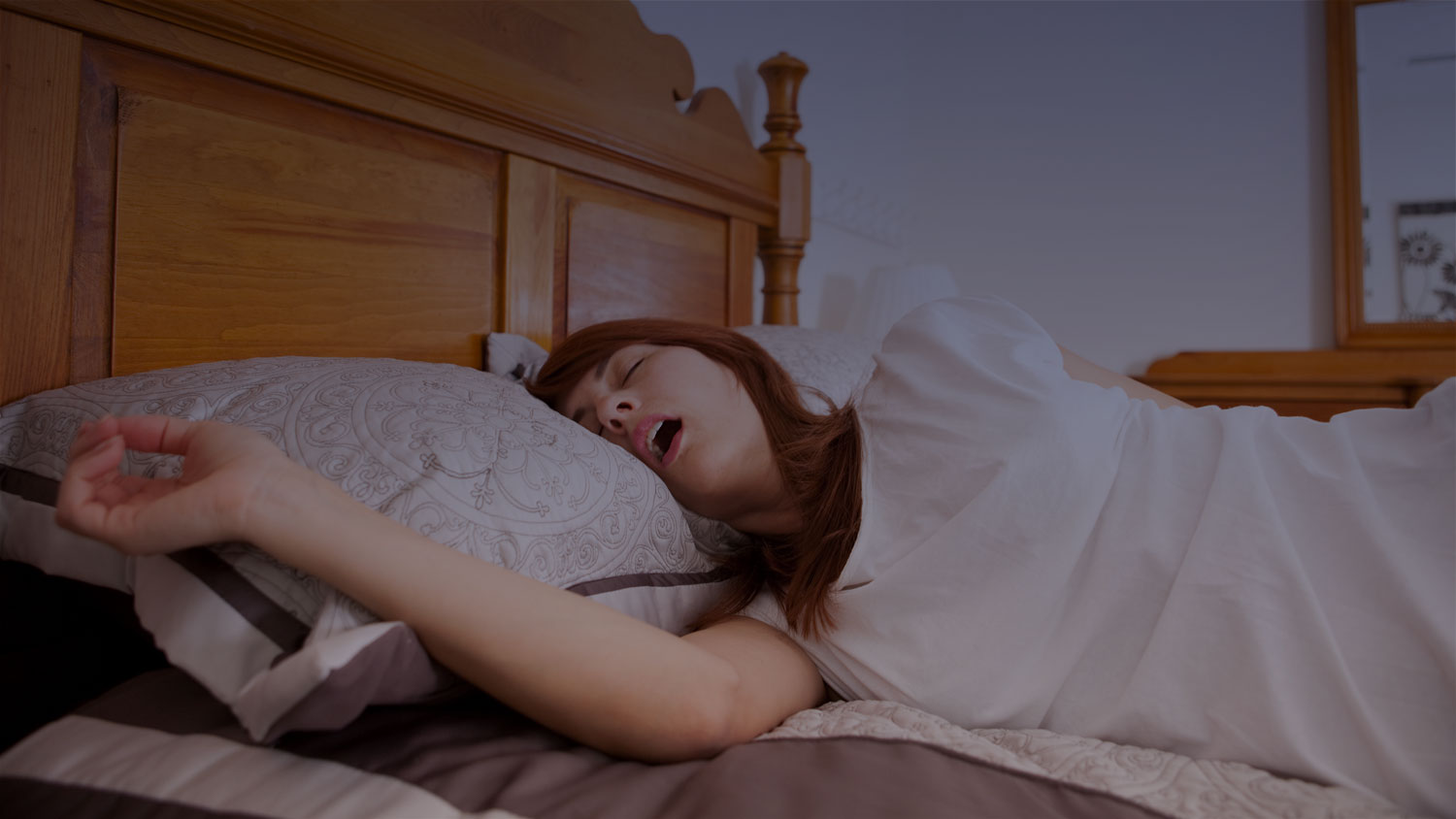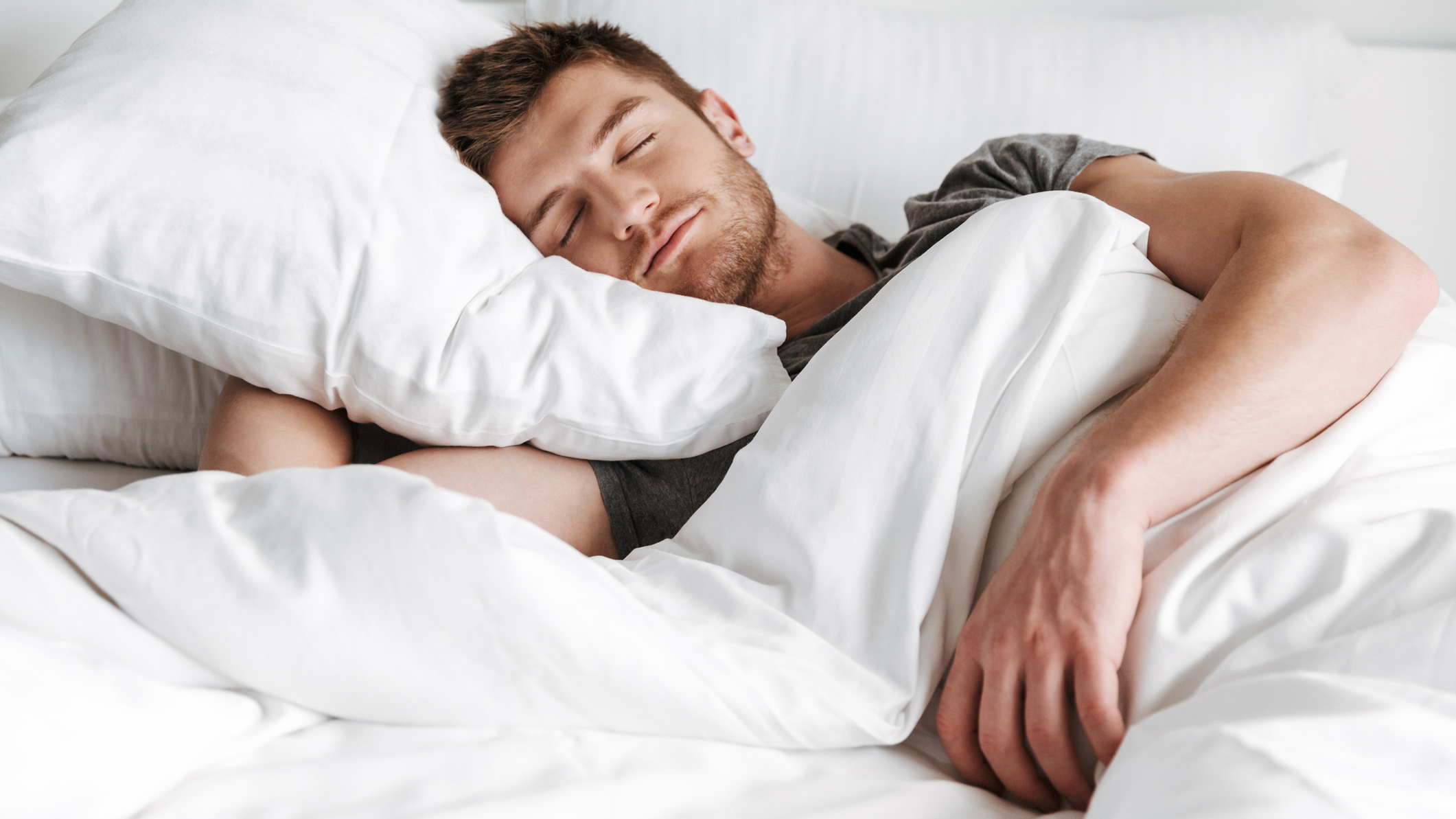How to stop snoring: tips from a sleep expert
A sleep expert explains how to reduce your snoring

If you want to know how to stop snoring, we're here with the advice you need. Snoring can impact your quality of sleep – waking you and your partner up. Most of us have experienced or encountered the harsh sound of snoring, but beyond this breathing condition becoming annoying and affecting our sleep, it can also have several health implications – from sleep apnea to cognitive issues.
Lifestyle factors, such as being overweight or drinking alcohol, can increase the severity of snoring, however, simple changes in your diet or even sleeping conditions, such as selecting the best mattress or best pillow can help reduce your snoring.
We spoke to Dr. Chelsie Rohrscheib, Ph.D., head sleep expert and neuroscientist at Wesper, while also looking at the latest research on what snoring is, if the condition can become dangerous and how to reduce snoring in the long term.
What are the main causes of snoring?
Before you think it's just you, you’re not alone, as research shows that over half of adults snore and over 25 per cent of us are habitual snorers.
But, why does snoring happen? “Snoring occurs when there is an obstruction in your upper airways, usually the nose or throat,” explains Rohrscheib. “The air passage is restricted when it moves past these obstructions, resulting in vibrations and resistance, which cause a snoring sound.”
Of course, some of us don’t snore every night and conditions such as colds and viruses could block these airways occasionally. “Snoring can be infrequent if it does not occur every night or it can be habitual when it occurs most nights. Snoring can also range in intensity from light quiet snoring to loud and labored snoring,” she adds.

Lifestyle factors which could result in snoring range from drinking too much alcohol to having nasal problems, however, studies have shown that being overweight, especially having a thicker neck, can greatly affect your sleep and snoring - and could even lead to more serious conditions.
Sign up for breaking news, reviews, opinion, top tech deals, and more.
“Excess weight in the upper neck restricts the airways and may lead to snoring or sleep apnea,” says Rohrscheib. “Weight loss may therefore improve your snoring.”
- What is sleep paralysis? A sleep expert explains all
Is snoring genetic?
It sounds like an odd thing to pass down to your children, but multiple studies have shown that if your family members snore, then it's more likely that you either snore now, or you will start to snore as you age – especially if you’re a man.
However, this is linked to occasional snoring, rather than habitual snoring and other lifestyle factors may be linked to your snoring if you snore every night.
Is snoring a sign of sleep apnea?
Sleep apnea can is a condition where you stop breathing when you sleep - and can have dangerous side effects if it's not recognised quickly and dealt with. Those who snore habitually and wake themselves up frequently could have sleep apnea. Other symptoms could be daytime drowsiness or poor concentration levels.
Rohrscheib explains the sleep syndrome in more detail: “The same obstructions that cause snoring can fully obstruct breathing, causing long breathing stoppages, which occur in sleep apnea. Not all snorers have sleep apnea and not all sleep apnea patients snore, however the more intense and chronic your snoring, the more likely you are to have sleep apnea."
How to reduce snoring

Sleep on your side: Sleeping on your back could make snoring worse, with Rohrscheib adding that this is because: "Sleeping on your back allows gravity to pull the tissues of your oral cavity into the back of the throat and cause obstructions, which often result in snoring." She goes on to say that sleeping on your side can help to keep the airways open. If you struggle to sleep on your side one trick is putting pillows on either side of you so you don't end up on your back again.
Keep your mouth closed: Snoring can be worse when we breathe through the mouth instead of the nose. Mouth taping, a white porous tape, which is loosely attached over the mouth when you sleep, has been proven to reduce snoring. The study, conducted last year, found that around 65% of participants reduced their snoring.
However, the sleep expert warns that you should 'only use mouth tape if there are no nasal obstructions that restrict airflow through the nose.'
Nasal dilators and strips - nasal dilators are worn inside the nose to open your airways, while nose strips such as Breathe Right or Snoreeaze are worn over the nose to help keep your airways open. A 1997 study found that nasal strips can be an effective way to reduce snoring.
Elevate the head of your bed - whether you pile your pillows up high, or you have a bed which elevates the head, this solution can help to reduce snoring a sit opens the nasal airways better.
Long term health changes to reduce snoring
Losing weight - According to statistics, 1 in 3 adults in the US are overweight. If you think it's affecting your sleep and making you snore talk to your doctor about the right type of weight loss plan for you.
Smoking or other pro-inflammatory factors - Live in a damp apartment or allergic to something such a pollen? This could cause inflammation and irritation to your airway. Quitting smoking or improving air quality with an air purifier such as the Dyson Purifier Cool Autoreact, could reduce snoring.
Alcohol - Rohrscheib explains that alcohol, especially when you've had an excess of it, it may cause 'an over-relaxation of oral tissues, which result in snoring. Reducing intake, especially at night may help reduce snoring.'
Should you seek medical help for snoring?
Snoring may be an annoyance, both to you and to anyone who is sharing a bed with you, but it’s not a medical matter unless it’s causing you serious sleep disturbances every night. Dr. Rohrscheib explains that you should see a doctor if you suffer from: "Daytime sleepiness, cognitive issues such as poor focus and memory, you stop breathing, choke or gasp for air at night or you have high blood pressure or cardiovascular issues."
She goes on to add: “You should speak to your doctor if your snoring is habitual, which means it occurs on most nights. Or if your snoring is loud and disruptive as this may indicate a larger problem such as sleep apnea.”

Dr. Rohrscheib is a sleep expert, neuroscientist, and sleep consultant with over 10 years of experience in the field of sleep. She holds a bachelor’s degree in Biomedical Science with Honors and a Ph.D. in Neuroscience with a specialty in sleep genetics. She also worked in clinical trials where she oversaw sleep apnea research.
Nectar Sleep Awareness Week Sale: 33% off everything
Sleep Week savings - Nectar is celebrating Sleep Awareness Week by taking 33% off all its mattresses. This means that the ever-popular Nectar Mattress is available from $359 in a twin size, while a queen will cost you $699. All Nectar's mattress are available in memory foam and hybrid options, and we rate them among the best in the business, so don't miss out on this deal!
This article is part of TechRadar's Sleep Week 2023 celebration (running until Saturday 18 March), a week-long look at all things slumber. We'll be bringing you proven techniques and tips to help you sleep better, and have rounded-up all the top-rated tech to transform your sleep.

Sarah is a freelance writer - writing across titles including Woman&Home, Fit&Well, TechRadar, the Independent and the BBC. She covers a variety of subjects, including trends in beauty, business and wellness - but her biggest passions are travel and fitness. She can normally be found trying out the latest fitness class or on a plane to an exotic destination. While she loves to combine the two - signing up to do hiking holidays in LA, intense boot camps in Bali - last year she went on her dream activity holiday: paddleboarding around deserted islands in Croatia.
